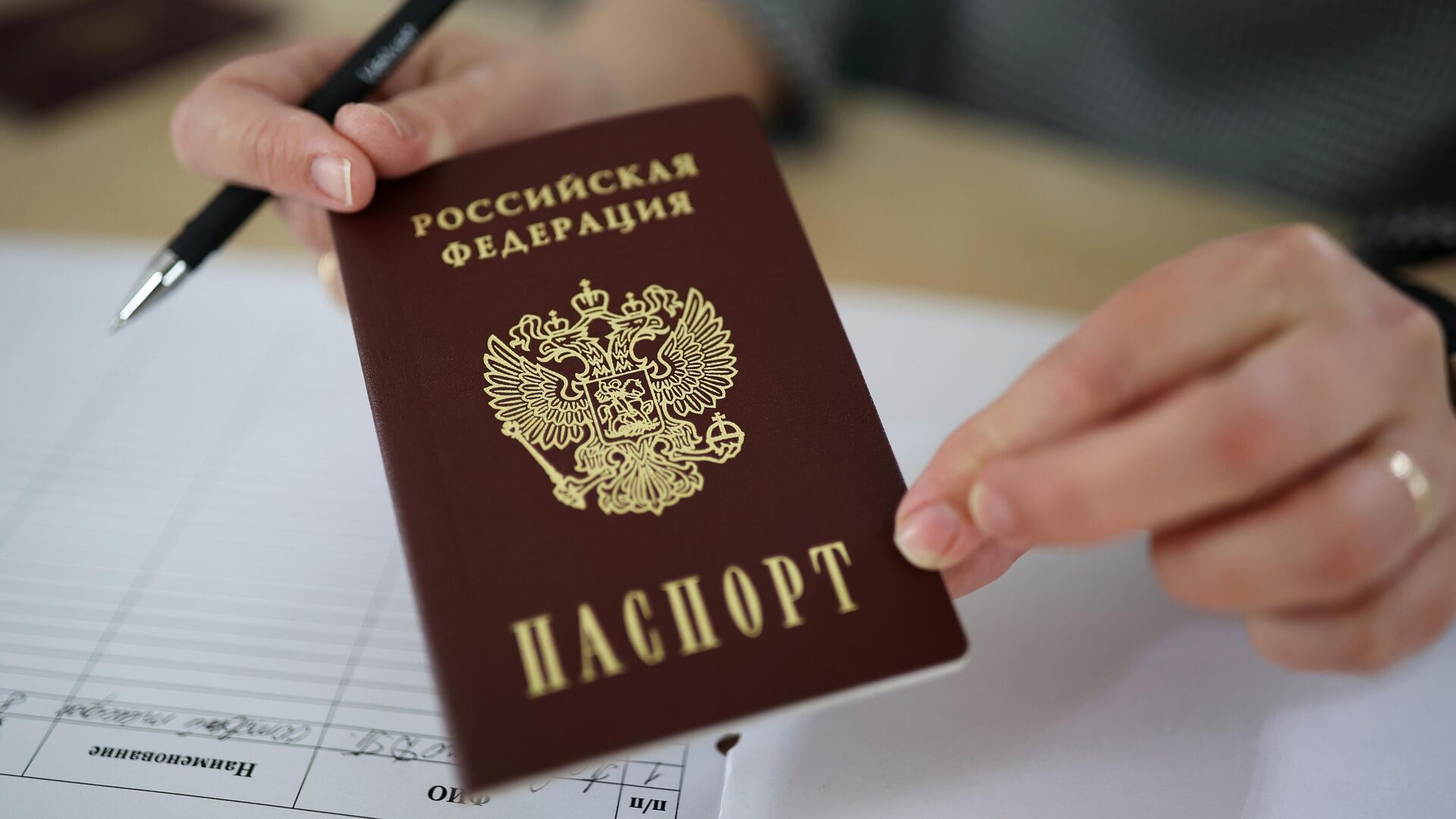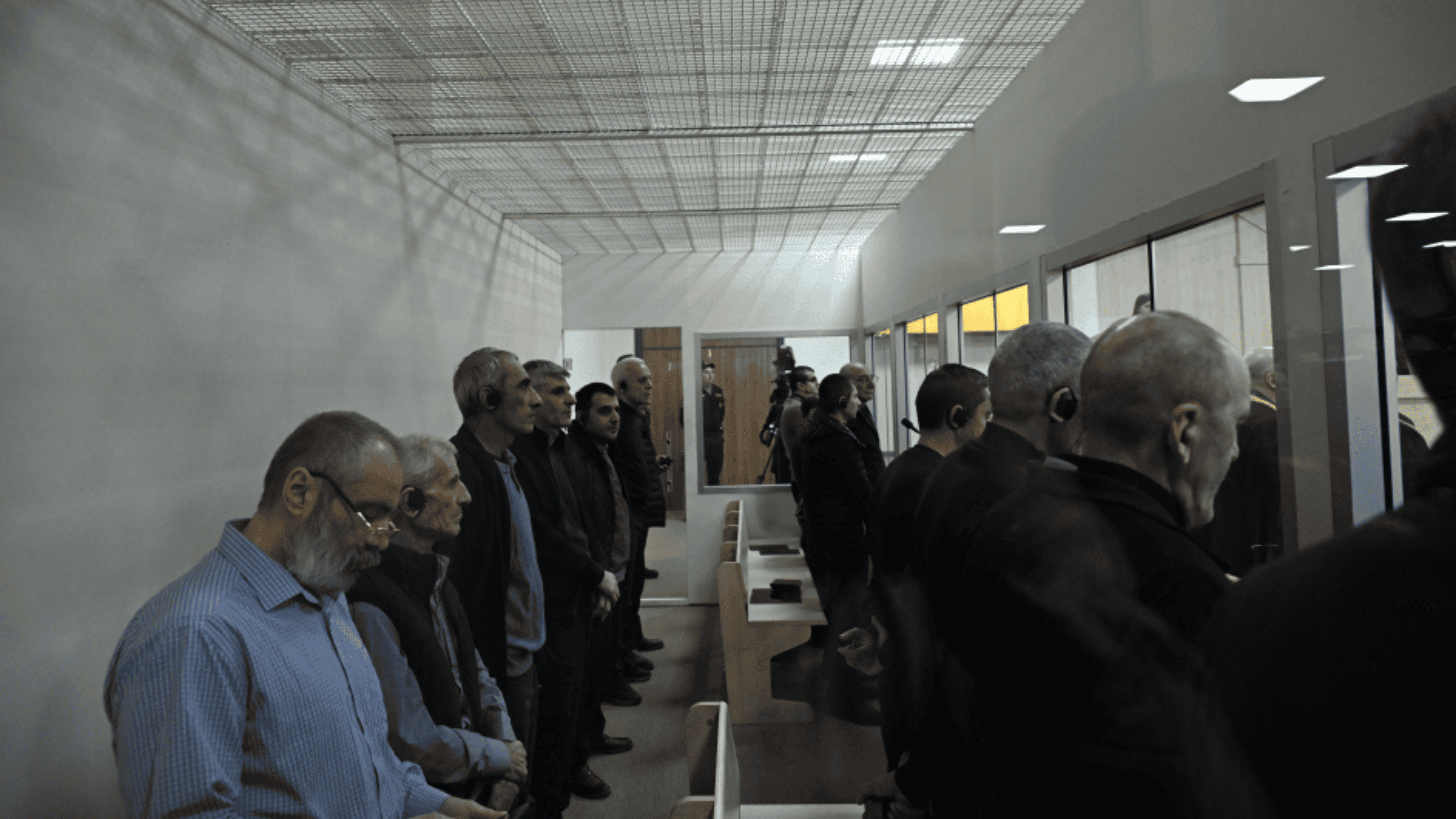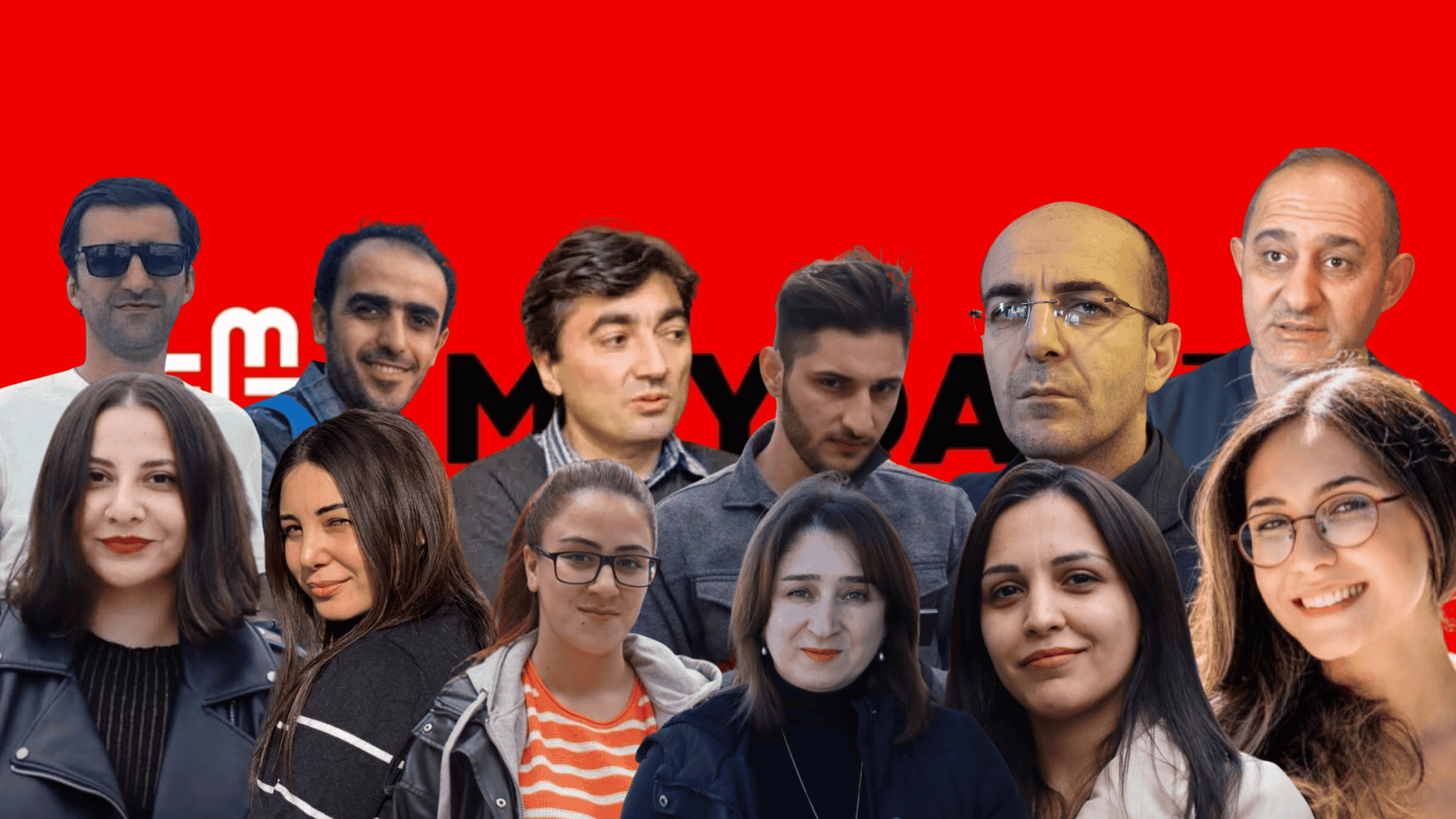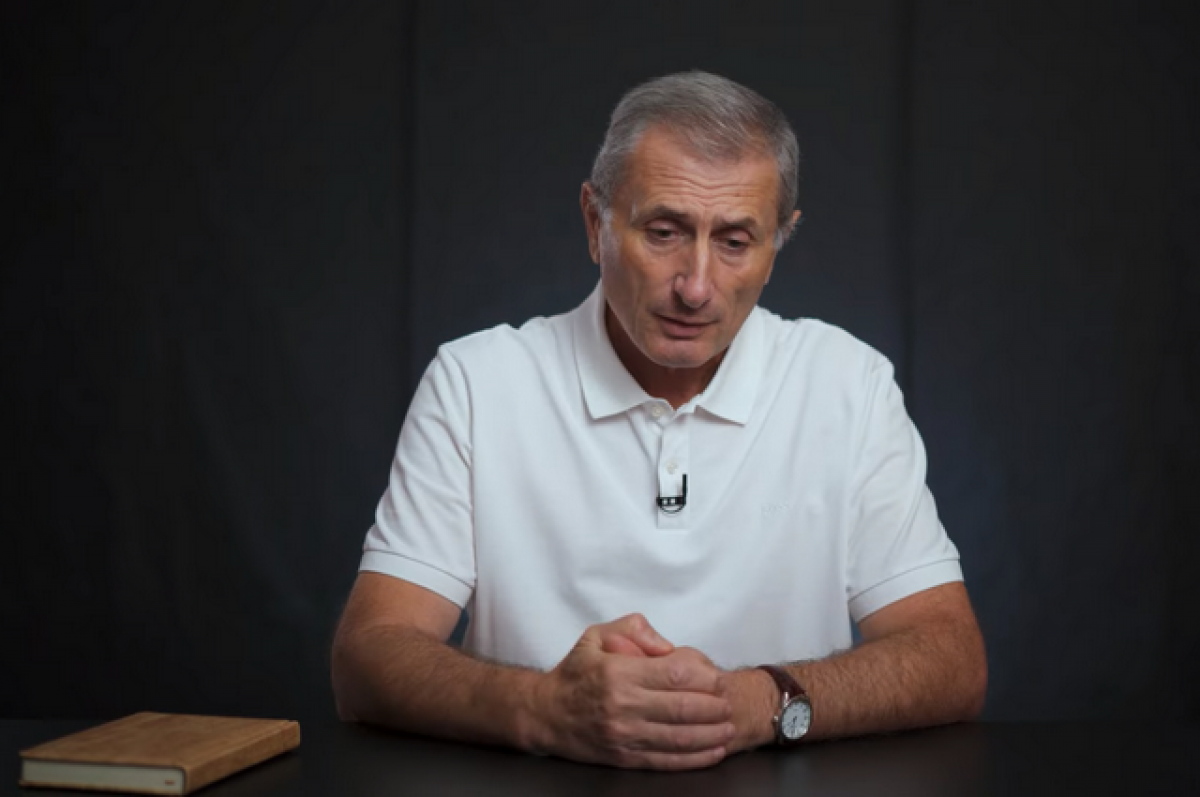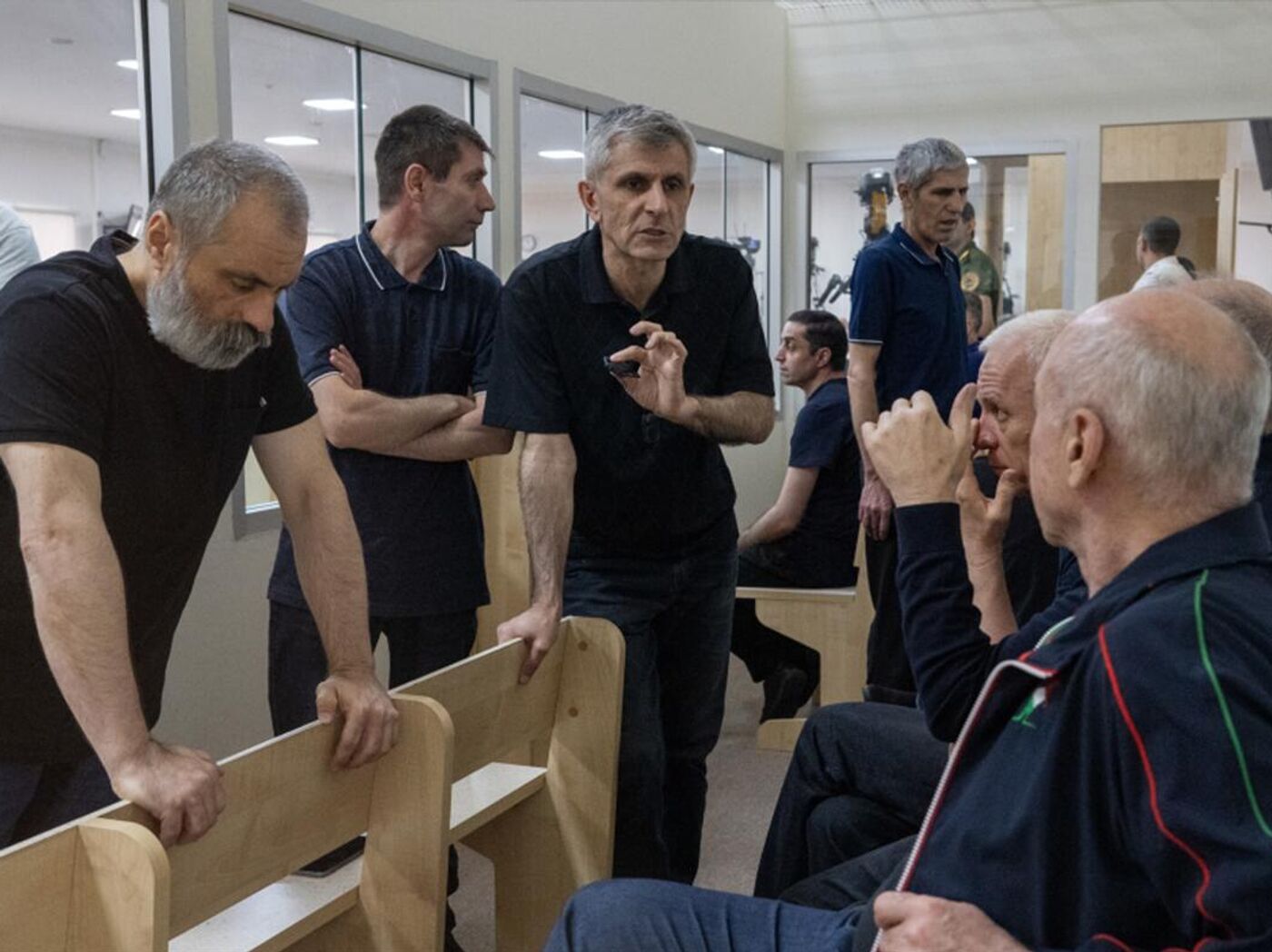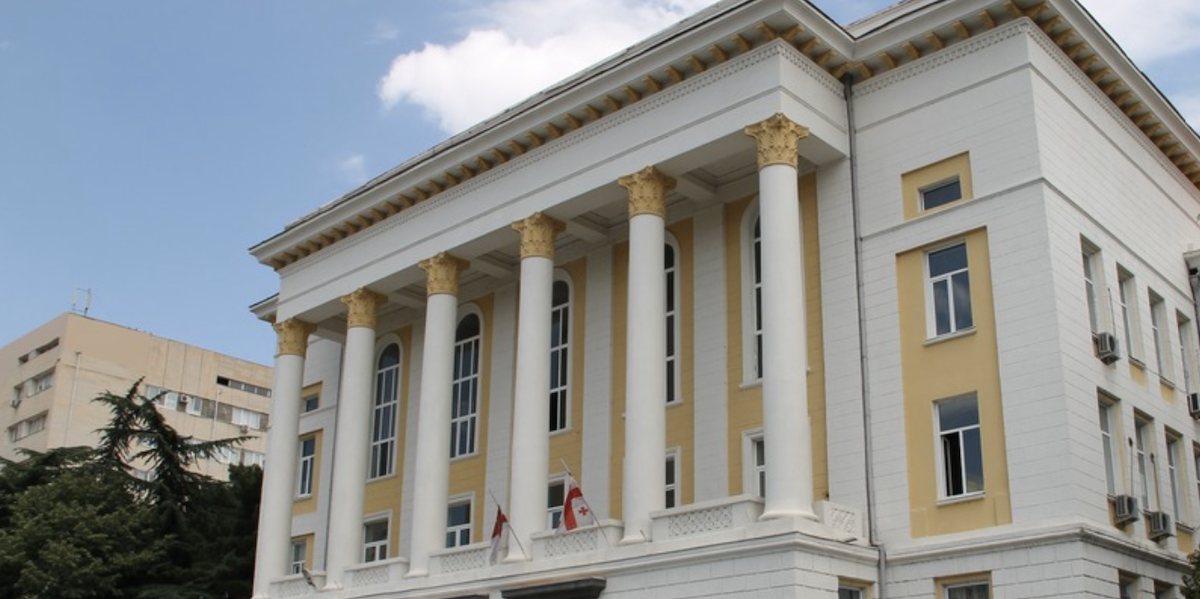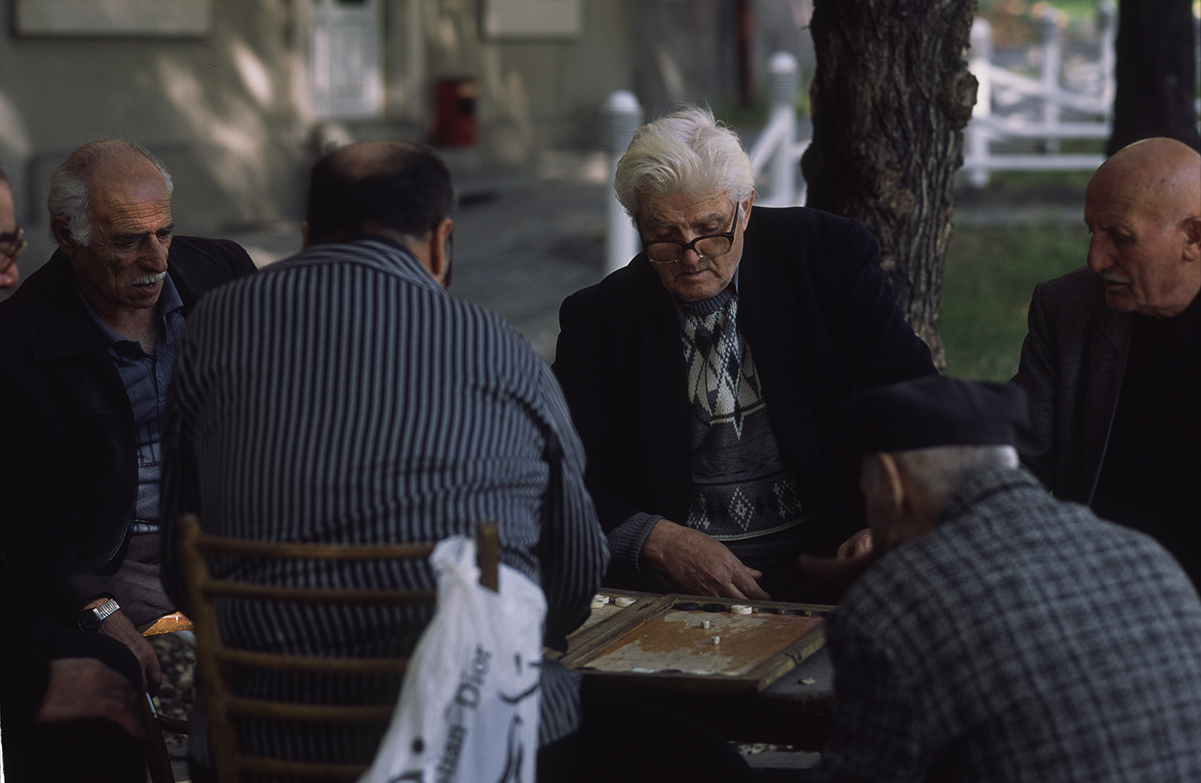They want to get a grip on church, don’t they?
Having entered through a rusty gates of a dilapidated church in Kumurdo village one see a huge, expanding area, with different-size mossy stones, scattered all around. Some of them bear inscriptions and ancient ornaments.
The area around the church is covered with dried green and three, recently dug-out pits could be seen at three locations, at the eastern wall.
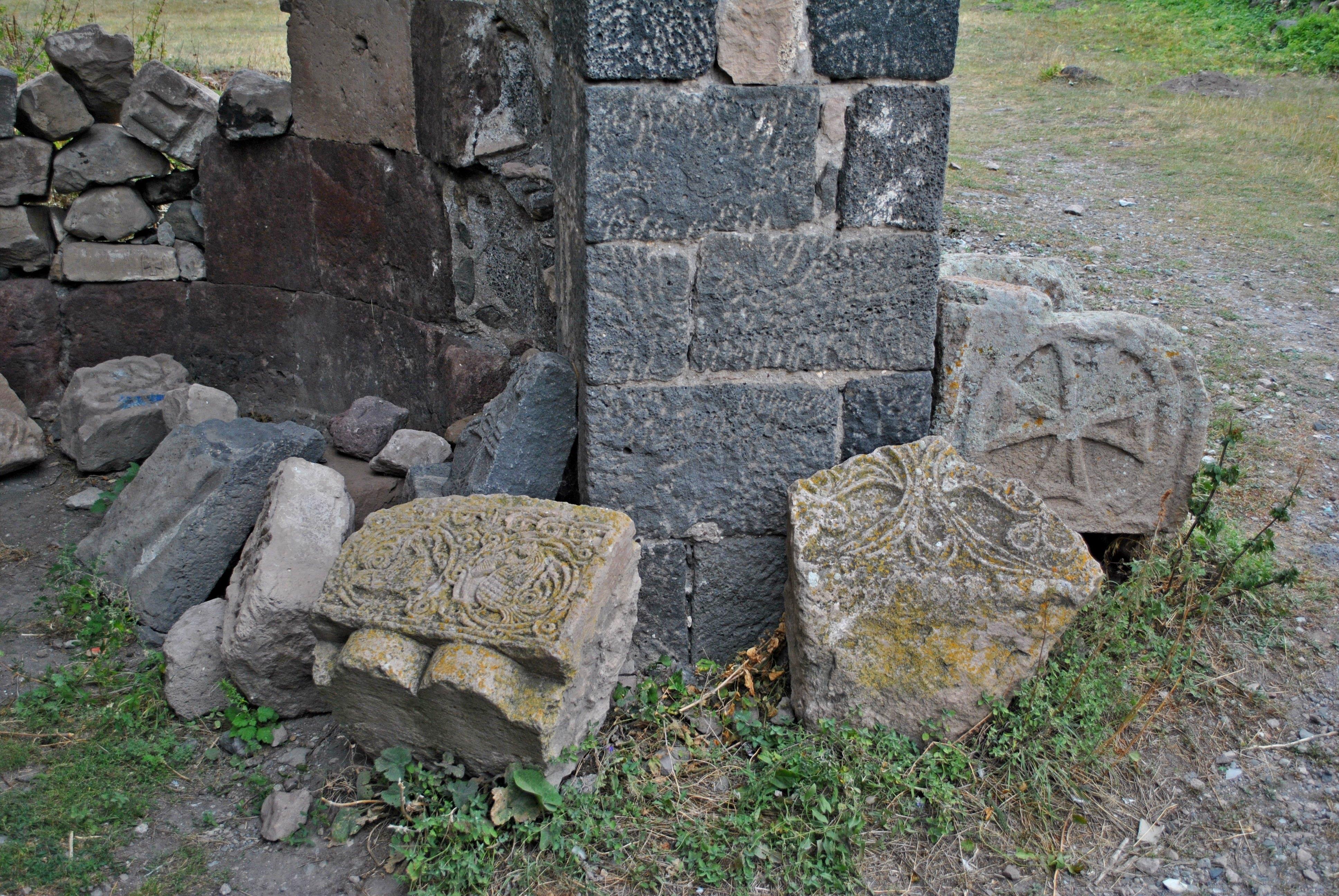
Church has not been operating for a long time. The divine service is not conducted here. However, this is the only parish for the residents of Kumurdo village, predominantly populated by ethnic Armenians. Every time the Armenian Apostolic Church marks a holiday, the priests are invite here from other churches of Akhalkalaki region. And people gather here each weekend to listen to the Bible passages, voluntarily read by their fellow villager, Ilia Gabirielyan. They come here to discuss different issues related to their faith and human existence.

Kumurdo village (in Armenian – Gumburdo) is located 18 km off Akhalkalaki. More than half of the male population in the village leave for Russia to earn money. Those, who are left, are engaged in farming and animal husbandry. The majority of the villagers do not speak the official language.

This is the ‘Holy Resurrection’ church, dated back to 10th century. It is one of those dozens of churches that triggered dispute between the Georgian Orthodox Church and the Armenian Apostolic Church. Both consider it their holy shrine.
The conflict exacerbated last summer, when the archaeologists from Tbilisi arrived in the village to conduct archaeological excavations, as well as rehabilitation of the monument. Those pits in the church area have been left since that time.
However, locals claim, that the real reason of their visit was to destroy the Armenian roots of this church.
The villagers expressed their discontent in a joint letter addressed to Akhalkalaki city administration and local representative office of the Armenian Apostolic Church, sent as early as in August.
The residents termed as ‘vandalism’ the works, conducted in the churchyard. They claim, their relatives’ graves disappeared from the church area after the excavations:
‘Having cleaned the stones, they dug out and removed the skulls of the deceased, put them into boxes and took away in an unknown direction. We, the people of Kumurdo
, demand from Georgia’s top officials and spiritual leaders to give back to us the remains of our beloved ones, and return them to the Holy Resurrection Church cemetery … ‘, reads the letter, in which 180 signees demanded to immediately set up a special commission to inquire into the matter.

Armenian Church has not commented on the letter yet. Meanwhile, Ashot Saharyan, the District Council member, told JAMnews, the archaeologists had buried the remains at the same place.
‘The villagers allowed to conduct excavations under one condition – they would dig out and fill up everything following the excavations. The entire excavation process took just one day – from 10 a.m. till 5-6 p.m. and the locals attended it,’ – said Ashot Saharyan.
Kumurdo residents confirm that they attended the excavations, however, they have a different version of what happened there:
‘They came with maps: they were well-aware of where the remains were; they took away everything they removed from dug pits, they did not bury them back. They broke the gravestone and took it away. Why did they do that and where did they take it? Every time they come, they take away something,’- says Vrezh Kurginyan, who attended the excavations.
‘People wonder, why don’t they show any interest in those many ruined churches in the neighboring villages? Why don’t they rehabilitate them? Why do they come to Kumurdo church? Here are our graves, our holy shrines, where we pray and lit candles.The thing is that they do not come to pray here, but rather to dig, destroy and provoke people,’- says Ararat Saharyan, the village resident.
As regards the rehabilitation plan and further actions, we have filed an inquiry with the National Agency for Cultural Heritage Preservation of Georgia, but we are still waiting for response.
Kumurdo residents have always overreacted to the visits of guests from Tbilisi. In the early 90s, there was the rehabilitation attempt, ‘ people from Tbilisi’ came again and the villagers then stood up to ‘defend’ the church.
Residents say they are not against the rehabilitation of the church, but they insist that Armenian Apostolic Church be engaged in this process.










